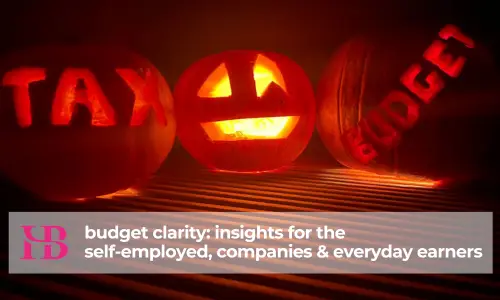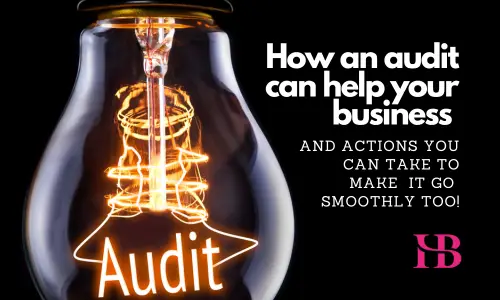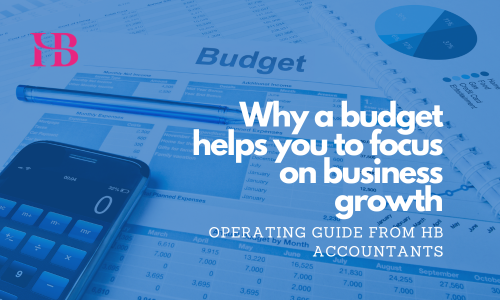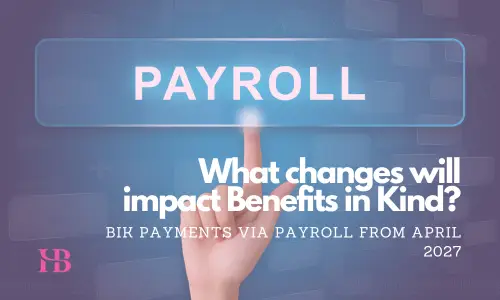On 30th October, Chancellor Rachel Reeves has presented Labour’s first Budget since their election. Understanding how their changes to the UK tax system impacts on your business and personal affairs is paramount. Get budget clarity here.

The Budget aims to deal with the £22 billion ‘black hole’ in public finances whilst restoring stability and rebuilding public services.
Here we will explore:
- Personal Tax
- Capital Taxes
- Employment
- Business
- Other matters
HB Accountants Autumn Budget Guide
Read or download our Budget Guide here;
Personal Tax
As promised in the Labour manifesto, no changes were announced to the rates of Income Tax. In addition, the government will not extend the freeze to income tax thresholds. From April 2028, these personal tax thresholds will be uprated in line with inflation.
The government will increase the Lower Earnings Limit and the Small Profits Threshold for National Insurance contributions (NICs) by 1.7% for 2025/26 to £6,500 and £6,845 per annum respectively. For those paying voluntarily, the government will also increase Class 2 and Class 3 NICs rates by 1.7% for 2025/26. The main Class 2 rate will be £3.50 per week and the Class 3 rate will be £17.75 per week.
The government confirmed that the non-domicile regime will be abolished from 6 April 2025. Individuals who opt-in to the new residence-based regime will not pay UK tax on foreign income and gains for the first four years of tax residence. As part of the transition the Temporary Repatriation Facility will be extended to three years. The government will not proceed with the reform to base the High Income Child Benefit Charge on household incomes as proposed by the previous government
Capital Taxes
Capital Gains Tax
The lower rate of Capital Gains Tax (CGT) will be increased from 10% to 18% and the higher rate from 20% to 24% for disposals of non-residential assets made on or after 30 October 2024. The rates on residential property will be maintained at 18% and 24%.
The rate of CGT on assets qualifying for Business Asset Disposal Relief and Investors’ Relief will rise gradually to 14% from 6 April 2025 and to 18% from 6 April 2026.
The CGT rates currently applied to carried interest will be increased to 32% from April 2025 and carried interest will be taxed fully within the Income Tax framework from April 2026.
Inheritance Tax
The Nil Rate Band and Residence Nil Rate Band for Inheritance Tax (IHT) are currently frozen at £325,000 and £175,000 respectively until April 2028. The government is extending these threshold freezes for a further two years to April 2030.
The government will bring unused pension funds and death benefits payable from a pension into a person’s estate for inheritance tax purposes from 6 April 2027.
Agricultural Property Relief (APR) and Business Property Relief (BPR) will be reformed. From April 2026, the first £1 million of combined eligible agricultural and business assets attract 100% relief. The rate of relief on excess assets will be 50%. The government will also reduce the rate of BPR to 50% for shares designated as ‘not listed’ on the markets of a recognised stock exchange, such as AIM.
From 6 April 2025 the government will introduce a new residence based system for IHT, ending the use of offshore trusts to shelter assets from IHT.
Employment
From 6 April 2025 the rate of employers’ NICs will be increased by 1.2% to 15%. The per‑employee threshold at which employers start to pay NICs will be reduced from £9,100 per year to £5,000 per year.
The Employment Allowance currently allows businesses with employer NICs bills of £100,000 or less in the previous tax year to deduct £5,000 from their employer NICs bill. The amount of the Employment Allowance will be increased from £5,000 to £10,500 and the £100,000 threshold for eligibility will be removed. In addition, the government is extending the employer NICs relief for employers hiring qualifying veterans for a further year from 6 April 2025 until 5 April 2026.
The percentages for company car benefits will be increased for 2028/29 and 2029/30 as follows:
- Increase of 2% per year for zero emission and electric vehicles.
- Increase to 18% in 2028/29 and 19% in 2029/30 for cars with emissions of 1-50g of CO2 per kilometre.
- Increase of 1% per year for all other vehicle bands.
- The maximum will also increase to 38% in 2028/29 and 39% in 2029/30.
The government will uprate the Van Benefit Charge and Car and Van Fuel Benefit Charges by CPI from 6 April 2025.
From April 2026, to tackle the significant levels of tax avoidance and fraud in the umbrella company market, the government will make recruitment agencies responsible for accounting for Pay As You Earn on payments made to workers that are supplied via umbrella companies. Where there is no agency, this responsibility will fall to the end client business.
From April 2025 the National Living Wage will increase to £12.21 per hour for all eligible employees and the National Minimum Wage for 18-20 year olds will increase to £10.00 per hour for all eligible workers.
Business
The government will extend the 100% First Year Allowances (FYA) for qualifying expenditure on zero-emission cars and the 100% FYA for qualifying expenditure on plant or machinery for electric vehicle chargepoints for a further year to 31 March 2026 for Corporation Tax purposes and 5 April 2026 for Income Tax purposes.
The government has published a Corporate Tax Roadmap. The Roadmap includes a commitment to cap the Corporation Tax Rate at 25%, maintain the Small Profits Rate and marginal relief at current rates and thresholds and maintain key features such as Full Expensing, the Annual Investment Allowance, R&D relief rates and the Patent Box.
For 2025/26, eligible retail, hospitality and leisure properties in England will receive 40% relief on their business rates liability. The small business multiplier will be frozen for 2025/26.
The rate of the Energy Profits Levy will be increased by 3% to 38% from 1 November 2024. The levy will continue to apply until 31 March 2030.
Other matters
Other announcements included:
- The higher rates of Stamp Duty Land Tax for purchases of additional dwellings will be increased from 3% to 5% from 31 October 2024.
- As previously announced, all education services and vocational training provided by a private school in the UK for a charge will be subject to VAT at the standard rate of 20% from 1 January 2025. This will also apply to boarding services provided by private schools. In addition, it is intended that private schools in England will no longer be eligible for charitable rate relief from business rates from April 2025.
- From 6 April 2025, the government will increase the late payment interest rate charged by HMRC on unpaid tax liabilities by 1.5%.
If you would like to talk to us about looking after your personal or business tax, call us on 01992 444466. We’re experts ready to support you and your business, no matter your company size or sector.
The information contained above is for general guidance purposes only. Whilst every effort has been made to ensure the contents are accurate, please note that each individual has different circumstances and it is essential that you seek appropriate professional advice before you act on any of the information contained herein. HB Accountants can accept no liability for any error.
Read our latest blogs below
- HMRC Advisory Fuel Rates (AFRs) from 1st June 2025
 HMRC has published the latest Advisory Fuel Rates (AFRs) which apply from 1 June 2025. AFRs are the official rates used when reimbursing employees for business mileage in company cars. They’re reviewed every quarter (February, May, August and November) and adjusted in line with fuel prices.
HMRC has published the latest Advisory Fuel Rates (AFRs) which apply from 1 June 2025. AFRs are the official rates used when reimbursing employees for business mileage in company cars. They’re reviewed every quarter (February, May, August and November) and adjusted in line with fuel prices. - How an audit can help your business (and actions you can take to make it go smoothly too!)
 An audit may be a legal requirement for your business but a well managed audit can also boost your business growth and ensure that it is operating in the best way possible.
An audit may be a legal requirement for your business but a well managed audit can also boost your business growth and ensure that it is operating in the best way possible. - Why a budget helps you to focus on business growth
 Are you looking for clarity over the future direction of your business? Do you want to know the actions you should take in order to grow your business? Then consider taking time to create a budget for your business.
Are you looking for clarity over the future direction of your business? Do you want to know the actions you should take in order to grow your business? Then consider taking time to create a budget for your business. - How a SME Owner Can Create More Time
 SME owners and managers – are you part of the one in five small and medium-size enterprise managers that work on average an additional 3 hours a day on a regular basis? Or one of the 33% that claim that there just aren’t enough minutes in a day to get everything completed? (The Independent study … Continue reading
SME owners and managers – are you part of the one in five small and medium-size enterprise managers that work on average an additional 3 hours a day on a regular basis? Or one of the 33% that claim that there just aren’t enough minutes in a day to get everything completed? (The Independent study … Continue reading - A New Academic Year for our Student in Zambia
 As the new academic year unfolds in Zambia, we are delighted to share an update about our sponsored student, Getrude. Currently in her second year at Chalimbana University, Gertrude is studying Business Administration in Accounting and Finance.
As the new academic year unfolds in Zambia, we are delighted to share an update about our sponsored student, Getrude. Currently in her second year at Chalimbana University, Gertrude is studying Business Administration in Accounting and Finance. - Benefits in Kind via the Payroll
 From April 2027, Benefits in Kind (BIK) payments will need to be paid and recorded via payroll each month. Businesses need to prepare for this change.
From April 2027, Benefits in Kind (BIK) payments will need to be paid and recorded via payroll each month. Businesses need to prepare for this change.

